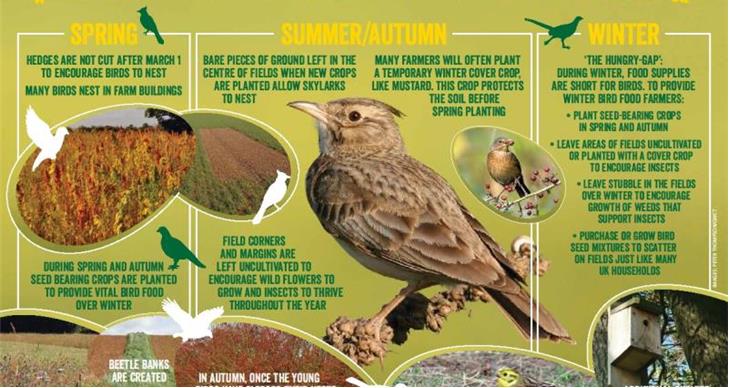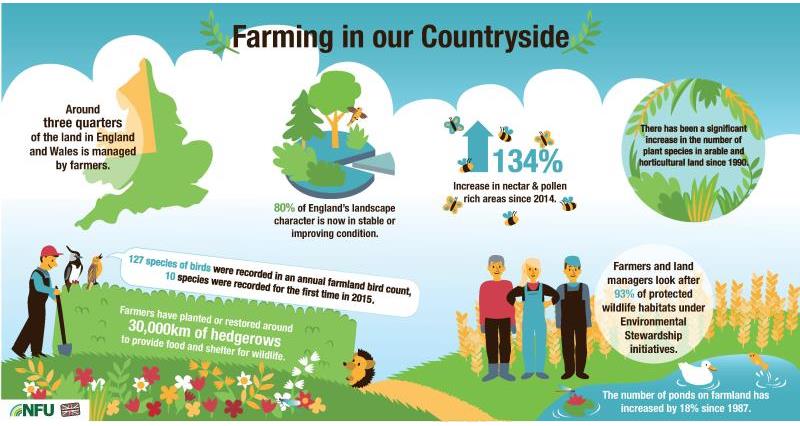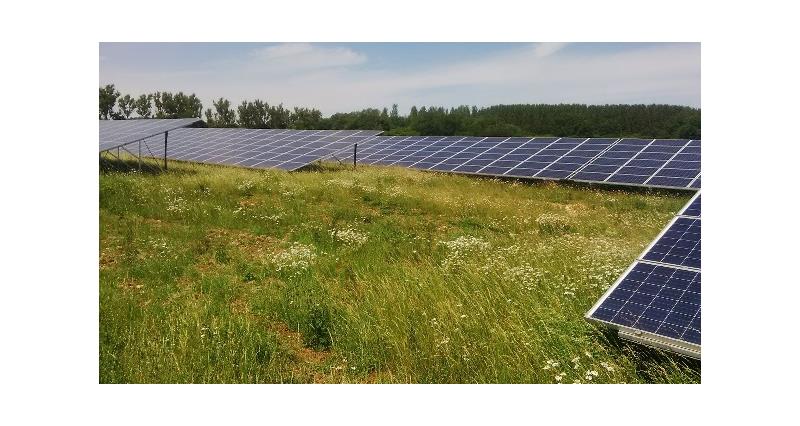The agreement sees solar developers Anesco join forces with the RSPB to help create and develop habitats under the solar panels in order to boost numbers of farmland birds and other wildlife.
The RSPB’s Darren Moorcroft was interviewed by Today presenter Justin Webb and explained that the partnership with Anesco would “build on their existing work to enhance their solar farm site biodiversity and to realise the potential they have to greatly benefit UK wildlife”.
However, on Radio 4’s 8am news bulletin it was reported that the new initiative "would help halt the decline in wildlife blighted by intensive farming".
The NFU also regrets Defra's 2014 decision that more than 10,000 hectares of solar farms do not count as eligible agricultural land, which rules out the opportunity for formal agri-environmental management of solar farm margins and open areas.
Pic: Skylark plot in an Oxfordshire solar farm
NFU chief renewable energy adviser Jonathan Scurlock said: “The NFU is aware of a number of long-term studies of biodiversity in solar farms about to be published, building upon the guidelines on biodiversity management and agricultural use of solar farms launched in 2014.
"We are delighted to have the backing of environmental NGOs in demonstrating multi-purpose use of land, supporting profitable farming and delivering on ecosystem services.”
- Today, more than a third of farmers and growers are using the sun, wind, farm by-products and energy crops to produce clean, low-carbon energy.
- Solar roofs, solar fields and other forms of renewable energy are all very much part of the future of the agricultural economy.
- Recent assessments revealed that British farmers hosted or owned some 500 solar farms and 10,000 solar roofs - together about 4,500 megawatts of generation capacity.
- As the environment becomes an increasingly important issue, farmers are finding creative ways to use land efficiently to produce clean energy and maximise ecological benefits. For instance, solar farms can boost biodiversity by creating wildlife refuges and pollinator reserves in the midst of farmland.
What British farmers are doing for the environment
British farmers are working hard to enhance the British countryside, protect the environment, maintain habitats for native plants and animals, maintain footpaths, protect watercourses and support wildlife species.
Productive farming depends on fertile soils and clean water, so it is hardly surprising that farmers prioritise the protection of these vital national resources. Farmers care about wildlife as well with 98% stating that protecting farm wildlife is important to them.

Find out more about farming and the environment on our Back British Farming site
More...
- Solar farms backed by conservation groups
- Solar lamb or PV chicken?
- Ineligibility of solar farm land 'not a deal-breaker', says NFU
- Blog: Successful bird ID day followed by a frosty count
- Poster – how farmers help farmland birds
- Video: How farmers protect the environment
- Blog: Guy Smith writes about the Big Farmland Bird Count

